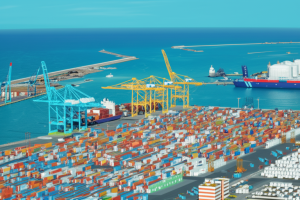The user wants a detailed analysis and professional report, over 1000 words, in simplified Chinese, based on the provided news headline: “Eyeing fairer revenue deal from carbon sector, Sarawak looks to Scotland-UK framework for guidance”.
I need to structure the response with an engaging intro, subheadings for logical progression, and a strong conclusion. The language should be accessible and creative, avoiding jargon. I must incorporate information related to the headline, specifically Sarawak’s perspective on carbon revenue and its interest in the Scotland-UK framework. The output must be in Markdown, in simplified Chinese, and strictly follow all formatting and content rules, including the removal of the main title and any greetings or conversational elements.
Plan:
* Engaging Introduction: Start with the global context of carbon markets and Sarawak’s unique position, hinting at the pursuit of a fairer deal.
* 小标题 1: 绿色浪潮下的财富再分配 (Wealth Redistribution in the Green Wave): Discuss the growing importance of the carbon sector and the economic potential it holds, especially for regions with significant natural resources like Sarawak.
* 小标题 2: 砂拉越的目光:为何是苏格兰-英国模式? (Sarawak’s Gaze: Why the Scotland-UK Model?): Explain Sarawak’s specific interest in the Scotland-UK framework. What aspects of this model are attractive? (Likely related to revenue sharing, jurisdictional control over resources, or regulatory approaches).
* 小标题 3: 苏格兰-英国框架的奥秘 (The Secrets of the Scotland-UK Framework): Detail what the Scotland-UK framework entails regarding carbon revenue, resource management, or land use relevant to carbon.
* 小标题 4: 砂拉越的愿景与挑战 (Sarawak’s Vision and Challenges): Discuss Sarawak’s specific goals for carbon revenue and the potential challenges in adapting or implementing a similar framework. This could involve legal, political, or technical hurdles.
* 有力总结: 走向更公平的绿色未来 (Towards a Fairer Green Future): Conclude by reiterating the significance of Sarawak’s move, the broader implications for resource-rich regions, and the potential for achieving a more equitable distribution of benefits from the carbon economy.




